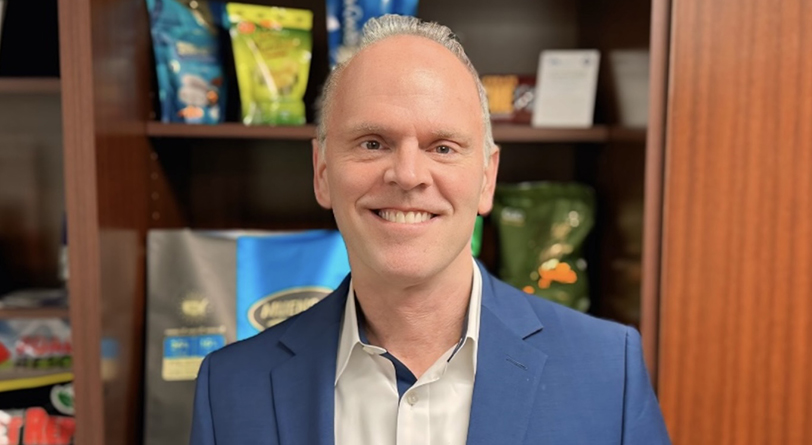New FPA Chief Talks About Appeal of Flexible Packaging, Food Waste, and the Theater
Dan Felton Also Discusses the Challenges the Packaging Industry Will Face in 2025

The cover feature of the January/February 2025 issue of FlexPack VOICE® is a conversation with Dan Felton, the new president and CEO of the Flexible Packaging Association (FPA).
Felton, who started as FPA’s leader on November 1, 2024, discusses his career and the challenges that the packaging industry will face in 2025.
Here are some more insights from Felton from that interview, edited lightly for clarity and style:
FlexPack VOICE®: Studies have shown that flexible packaging wins the technical side of arguments because it has a lower carbon footprint than other packaging materials. However, observers have pointed out that a lot of people base their opinions on emotional considerations when it comes to flexible packaging. What are your thoughts on this dynamic?
Dan Felton: It’s a combination of both. You need to find efforts to appeal to the emotional side of things, which is about getting more information out to consumers so that when they are making emotional appeals against flexibles, they have more information. FPA has used social media influencers and other means to get the word out. We have to balance that with giving consumers real information so that they understand the ramifications of the policies that are being proposed. It can be challenging to appeal to their emotional side, but you have to appeal to them with facts and information, even though a life cycle analysis (LCA) might sometimes come across as dry.
FPV: It’s interesting how people often don’t know what flexible packaging is and don’t understand that they use flexible packaging every day such as how their coffee is packaged.
DF: I’ve had that conversation a lot since people found out I’m heading to an organization that represents flexible packaging. I’ve talked about it at home. And I’ve talked about it with lobbyists. I tell them to look at the medical industry, for example. It’s a perfect example, and FPA has focused on that with its Sterilization Packaging Manufacturers Council. Until you point it out to people, they are not thinking about when they go to the dentist and there are all those sterile packages that people are ripping open and then putting things into their mouths. That is a great example of flexible packaging where someone would never be thinking of it unless you told them.
FPV: And then there is food waste and the challenges with that.
DF: People need to know that zip closures and vacuum seals are needed to keep products fresh. Policymakers don’t get that, either. If you’ve got a pork loin that is vacuum packed in that special packaging—which some policymakers might want to ban—the package keeps it fresh and usable for two to three weeks. Butcher paper or some other light wrap is probably going to keep it fresh for only three to five days. There is a significant reduction in food waste with flexible packaging, which goes back to the LCA studies. Everyone needs to holistically look at the value of flexible packaging to see what it’s trying to accomplish.
FPV: Talk a bit about your management style.
DF: I’m an open-door kind of guy, and it goes to my trade association and coalition experience. Trade associations provide a service just like any company would do, and the members are our customers. I really enjoy the interaction with the members and trying to solve problems, and that is what excites me. FPA has some problems to solve on the policy side, and it is a growing industry that by all accounts is going to continue to grow. We have our challenges and that is why I like working in a trade association.
FPV: Beyond the policy issues, how are AMERIPEN —the American Institute for Packaging and the Environment and FPA similar or different?
DF: The makeup of AMERIPEN and the makeup of FPA aren’t the same. But there is a lot of crossover. FPA is largely converters and manufacturers, and it has expanded to some other membership types for suppliers. AMERIPEN has a significant number of brand owners within the membership. FPA does not, given its current approved membership categories. I think we’ll be exploring some more around that. In the interim, we will continue to find ways to work with the brands. That’s a must. How that looks in the long run versus the short term still needs to be determined. That is always an interesting value proposition to figure out as you expand into other kinds of memberships.
FPV: The brands are often global companies with a lot of power and a lot of weight. I would imagine that is a big consideration.
DF: That’s exactly right. It probably would not work the same way it works at AMERIPEN. There certainly are some cautions, and we might need to have some sort of wall there as we continue to collaborate with the brands.
FPV: What else is similar?
DF: I am blessed that I get to continue to work with Serlin Haley and the team there because they work for FPA as lobbyists, and they work for AMERIPEN. The same with the law firm Webster, Chamberlain, & Bean.
FPV: You mentioned that one of your first passions was theater. What was one of the hardest or best parts you played?
DF: One of the hardest things I did was being in Les Misérables playing Jean Valjean. It was sort of a dream role for me to play, but it was eight shows a week. It mixed in with a new full-time job I had at the time. It about killed me.
Thomas A. Barstow is senior editor of FlexPack VOICE®.


